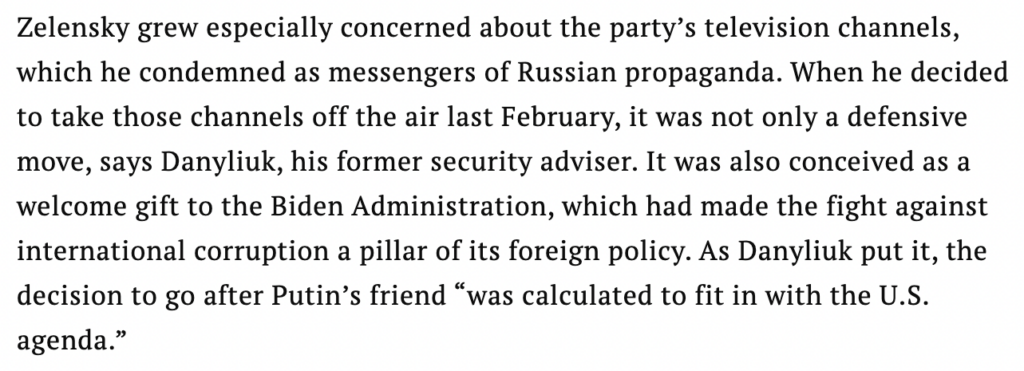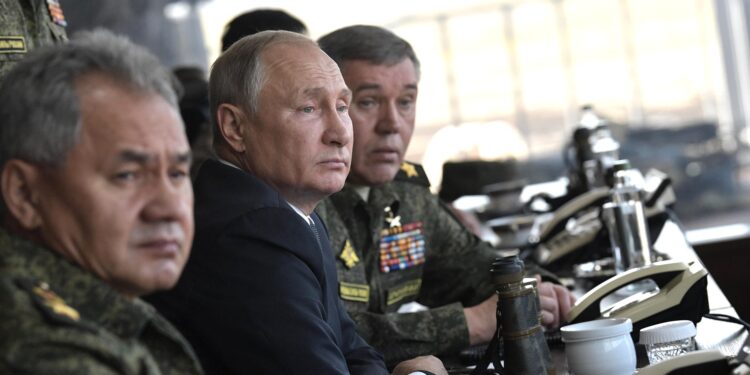In a recent article for Layout, the Russian journalist Ilya Zhegulev investigates how Putin “came up with the idea of a war in Ukraine”. Zhegulev is a respected dissident who’s currently affiliated to the Wilson Center in Washington (he’s not pro-Putin, in other words).
While there’ve been hundreds of articles discussing why Putin launched the invasion, this one happens to be based on “conversations with former and current officials in the Russian and Ukrainian authorities”. So it’s more worth your time than most – even if you don’t agree with all the author’s interpretations.
Some themes are familiar, of course. Putin increasingly viewed independent Ukraine as an “artificial phenomenon”. He was deeply suspicious of U.S. influence, believing that Americans “make all decisions regarding Ukraine”. And he’d sought to keep Ukraine within Russia’s sphere of influence via the Minsk agreements, which were “a great relief”.
When Zelensky came to power, Putin “hoped it would be possible to negotiate”, assuming “he would beat the inexperienced politician and finally launch the implementation of the Minsk agreements”. However, Zelesnky proved to be “an even more difficult negotiator than his predecessor”. After the 2019 Paris Summit failed to yield a satisfactory outcome, relations rapidly deteriorated.
The “last straw” was Zelensky’s decision to ban three pro-Russian TV channels linked to Putin-ally Viktor Medvedchuk. According to Zhegulev, this was an attempt to “neutralise” Medvedchuk – whose party had recently beaten Zelensky’s in six regional elections.
Three sources “close to the Russian president” all confirmed the significance of Zelensky’s decision, which Putin took as a “personal attack”. Zhegulev notes that “the existence of Medvedchuk and his channels” had been “like a bridge and a hope to somehow resolve the situation by political means”.

What Zhegulev doesn’t mention is how Oleksandr Danylyuk, Zelensky’s former national security adviser, characterised the decision in an interview with Time magazine last year. Specifically, he said that it was “calculated to fit in with the U.S. agenda”.
It’s not entirely clear what Danylyuk meant by this. The author of the Time article writes that banning the TV channels was “conceived as a welcome gift to the Biden Administration, which had made the fight against international corruption a pillar of its foreign policy”. So perhaps all Danylyuk meant is that Zelensky knew the U.S. would approve of him putting a stop to something that they considered corruption.

However, it’s certainly noteworthy that a decision representing the “last straw” for Putin was also “calculated to fit in with the U.S. agenda”.
There are two possibilities. One is that U.S. officials were well-intentioned but had such poor knowledge of the situation they never considered Putin would react to his ally’s TV channels being banned. The other is that U.S. officials actually wanted Putin to react.
Neither possibility inspires confidence.











To join in with the discussion please make a donation to The Daily Sceptic.
Profanity and abuse will be removed and may lead to a permanent ban.